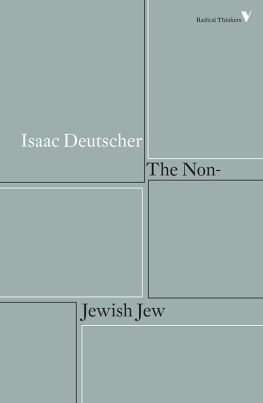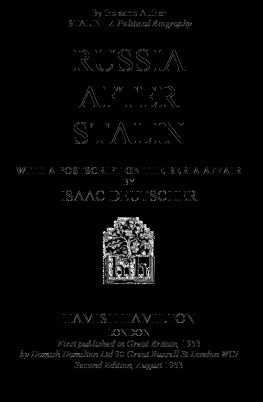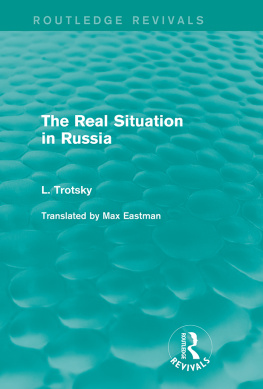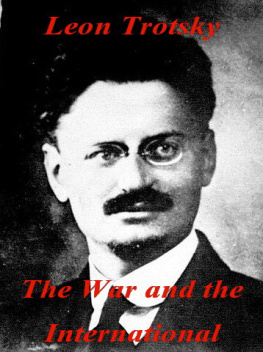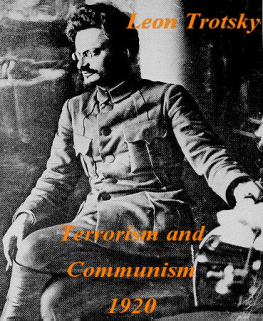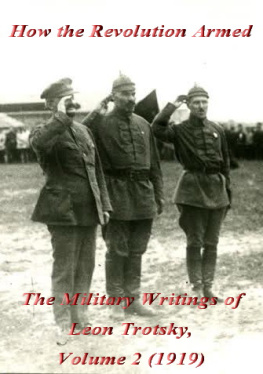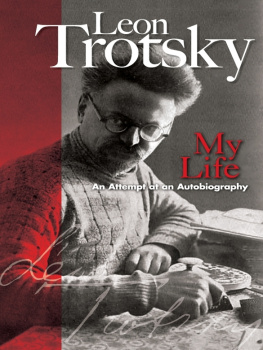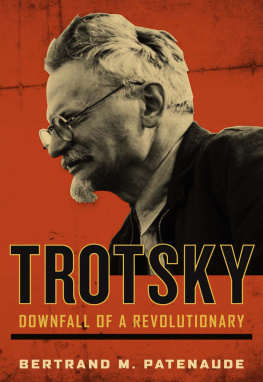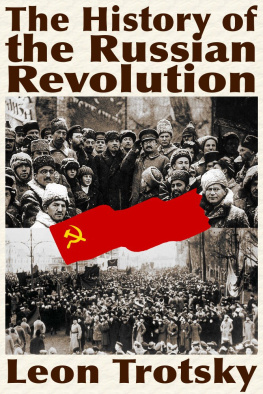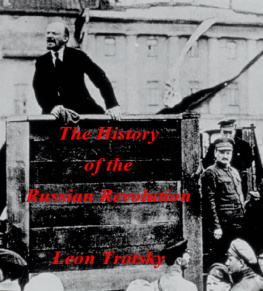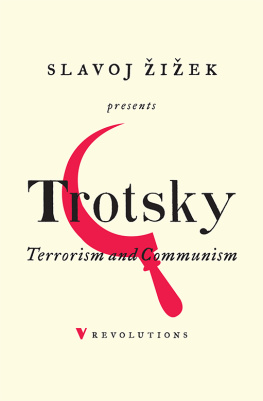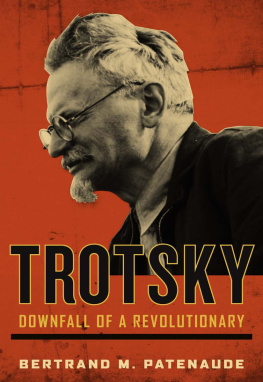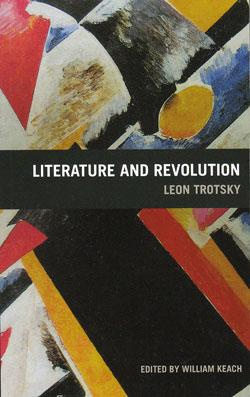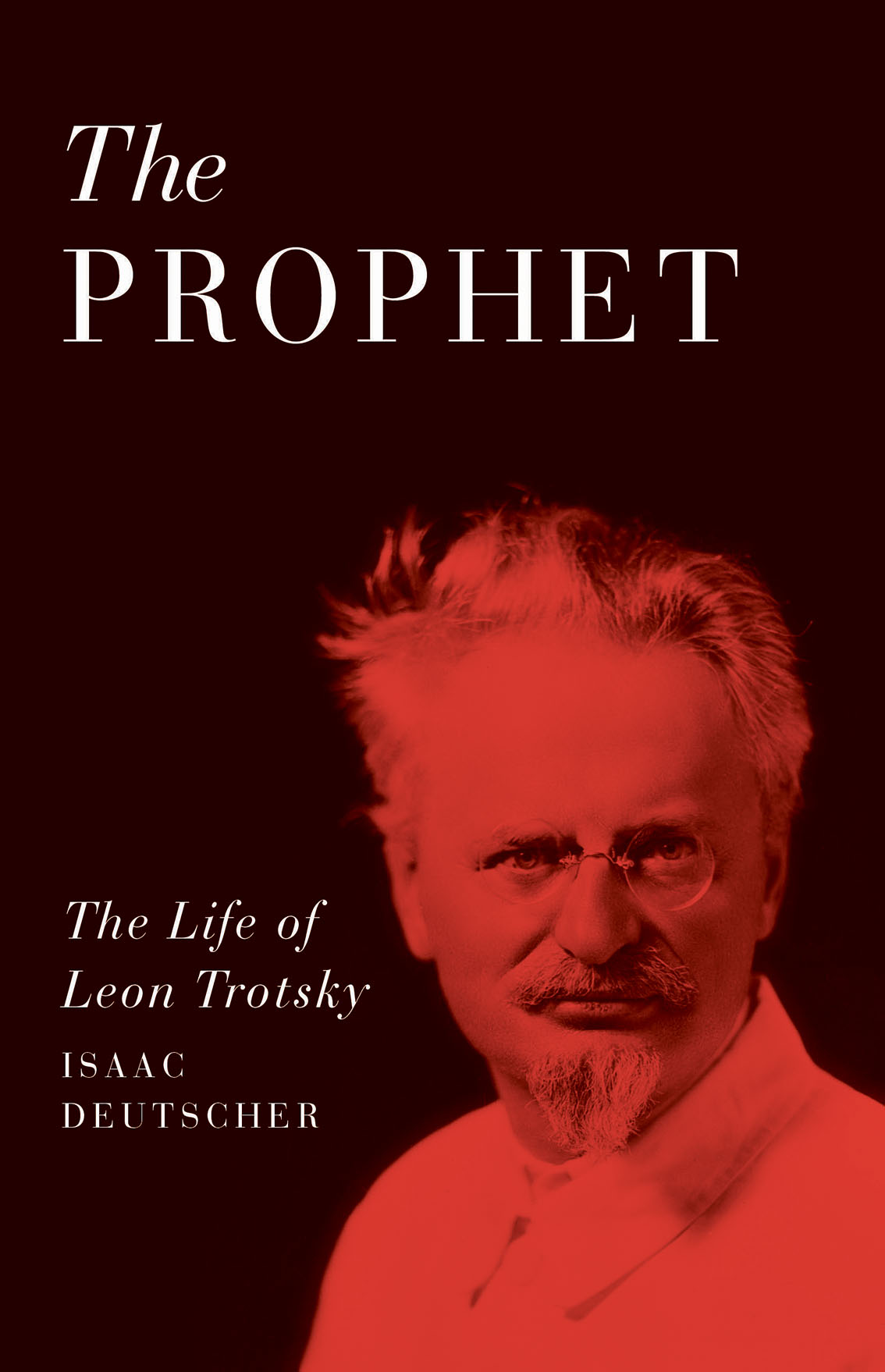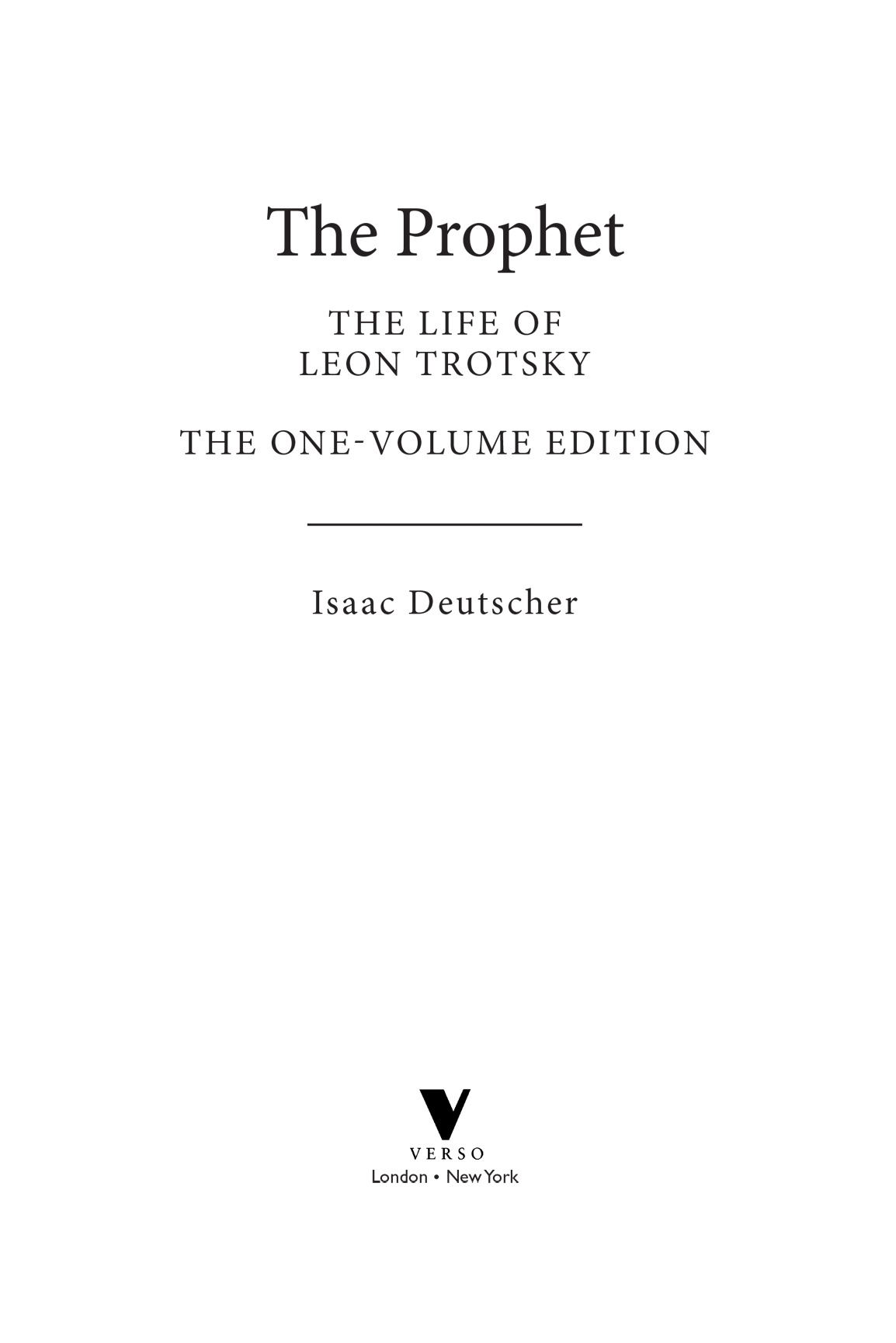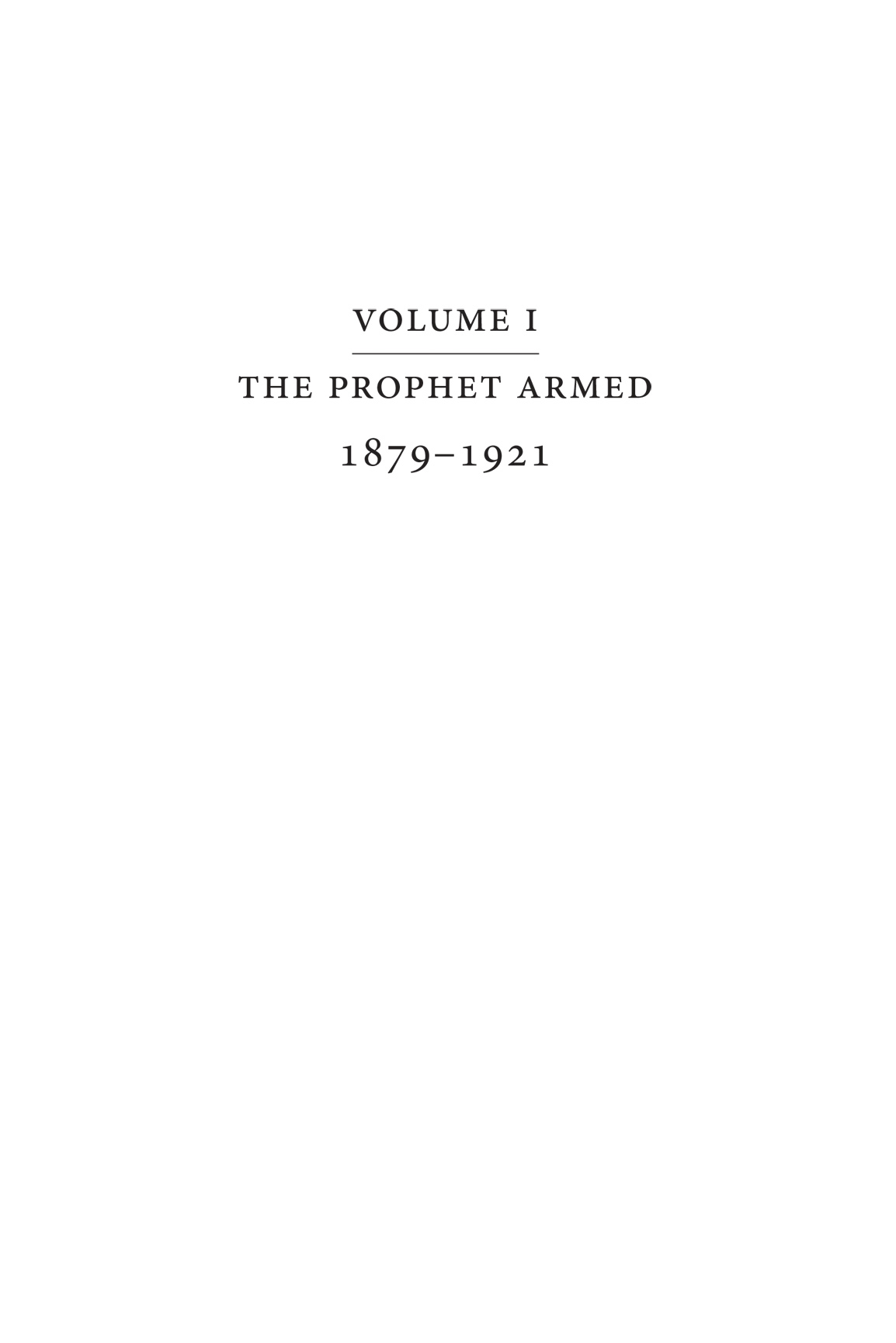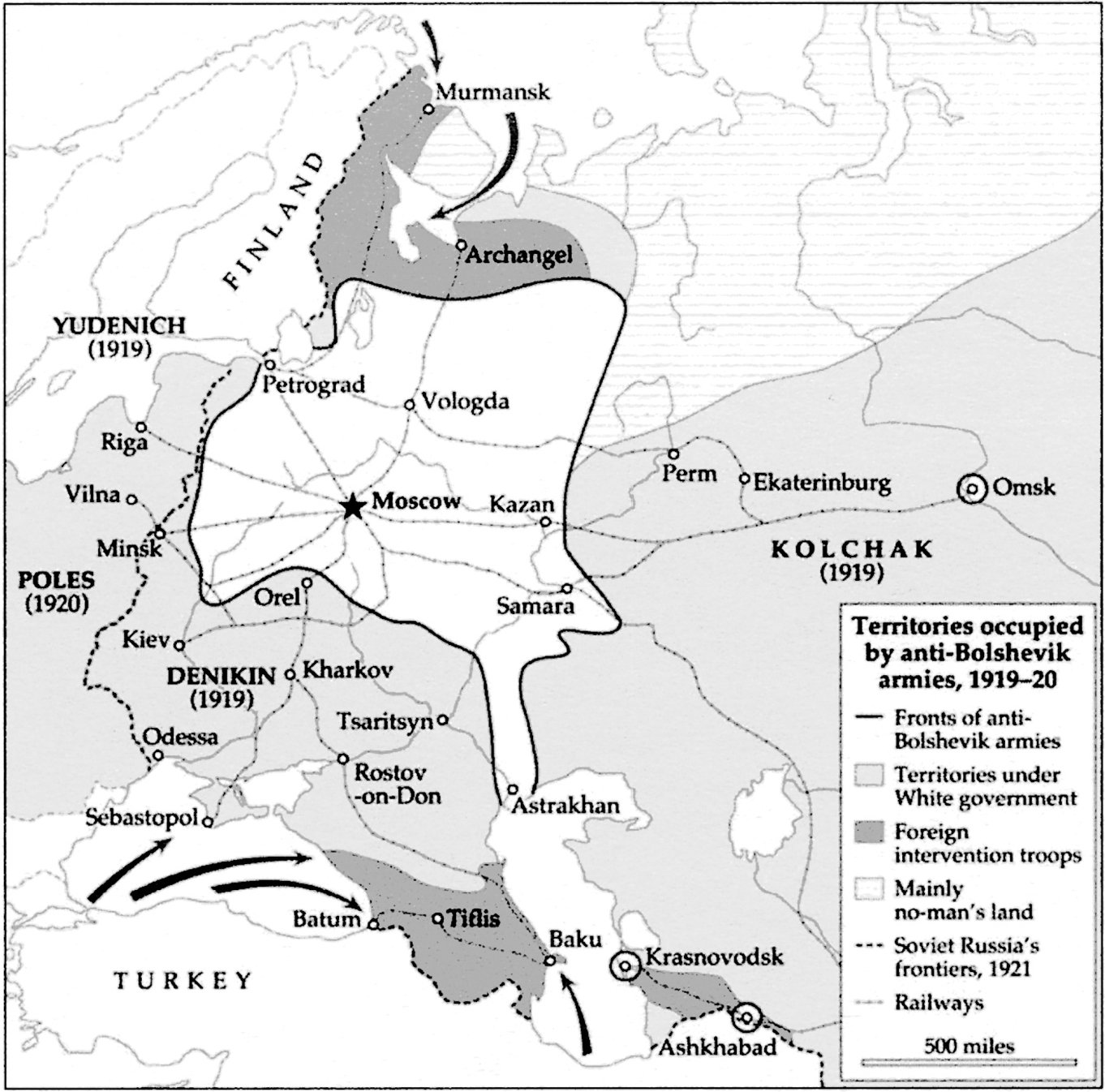This one-volume edition first published by Verso 2015
The Prophet Armed, The Prophet Unarmed , and The Prophet Outcast first published by Verso 2004
The Prophet Armed first published by Oxford University Press 1954
The Prophet Unarmed first published by Oxford University Press 1959
The Prophet Outcast first published by Oxford University Press 1963
The Estates of Isaac Deutscher and Tamara
Deutscher 1954, 1959, 1963, 2004, 2015
All rights reserved
The moral rights of the author have been asserted
Verso
UK: 6 Meard Street, London W1F 0EG
US: 20 Jay Street, Suite 1010, Brooklyn, NY 11201
www.versobooks.com
Verso is the imprint of New Left Books
ISBN-13: 978-1-78168-560-0
eISBN-13: 978-1-78168-562-4 (US)
eISBN-13: 978-1-78168-721-5 (UK)
British Library Cataloguing in Publication Data
A catalogue record for this book is available from the British Library
Library of Congress Cataloging-in-Publication Data
A catalog record for this book is available from the Library of Congress
v3.1
CONTENTS
LIST OF ILLUSTRATIONS
PREFACE
W HEN I first contemplated the writing of a biographical trilogy on the leaders of the Russian revolution I intended to include a study of Trotsky in Exile, not a full-scale biography of Trotsky. Trotskys later years and the tragic close of his life stirred my imagination more deeply than did the earlier and more worldly part of his story. On second thoughts, however, I began to doubt whether Trotsky in Exile could be made at all comprehensible if the earlier part of the story was not told. Then, pondering historical materials and biographical sources, some of them new to me, I came to realize more clearly than before how deeply the drama of Trotskys last years was rooted in the earlier and even the earliest stages of his career. I therefore decided to devote to Trotsky two separate yet interconnected volumes: The Prophet Armed and The Prophet Unarmed , the first giving what might be described as Trotskys rise, the second his fall. I have refrained from using these conventional terms because I do not think that a mans rise to power is necessarily the climax of his life or that his loss of office should be equated with his fall.
The titles to these volumes have been suggested to me by the passage from Machiavelli printed on page xii. The present study illustrates the truth of what is there said; but it also offers a somewhat ironical commentary on it. Machiavellis observation that all armed prophets have conquered and the unarmed ones have been destroyed is certainly realistic. What may be doubted is whether the distinction between the armed prophet and the unarmed one and the difference between conquest and destruction is always as clear as it seemed to the author of The Prince . In the following pages we first watch Trotsky conquering without arms in the greatest revolution of our age. We then see him armed, victorious, and bent under the weight of his armourthe chapter portraying him at the very pinnacle of power bears the title Defeat in Victory. And when next the Prophet Unarmed is contemplated, the question will arise whether a strong element of victory was not concealed in his very defeat.
My account of Trotskys role in the Russian revolution will come as a surprise to some. For nearly thirty years the powerful propaganda machines of Stalinism worked furiously to expunge Trotskys name from the annals of the revolution, or to leave it there only as the synonym for arch-traitor. To the present Soviet generation, and not only to it, Trotskys life-story is already like an ancient Egyptian sepulchre which is known to have contained the body of a great man and the record, engraved in gold, of his deeds; but tomb-robbers and ghouls have plundered and left it so empty and desolate that no trace is found of the record it once contained. The work of the tomb-robbers has, in this present instance, been so persistent that it has strongly affected the views even of independent Western historians and scholars.
Despite all this, the record of Trotskys life is still intact, preserved in his own voluminous but now mostly forgotten writings and in his Archives; in numerous memoirs of friendly and of hostile contemporaries; in files of Russian periodicals published before, during, and after the revolution; in minutes of the Central Committee; and in verbatim reports of the Congresses of the party and of the Soviets. Nearly all these documentary sources are available in public libraries in the West, although a few of them can be found only in private libraries. I have drawn on all these sources. Together with my wife, who shared equally with me in research and has in many other respects contributed greatly to this work, I made a special study of the rich collection of Russian pre-revolutionary periodicals in the Hoover Library at Stanford, California, where I found sources scarcely used before by historians of Russian revolutionary movements. Together with my wife I also studied the Trotsky Archives at the Houghton Library, Harvard University, by far the most important collection of original documents on Soviet history existing outside the U.S.S.R. (A brief description of the Archives is given in the bibliography at the end of this volume.)
I have therefore no ground for complaining here, as I complained in the Preface to my Stalin , about paucity of biographical material. This is due largely to the contrast between my chief characters. Trotsky was as communicative about his life and activities as Stalin was secretive. He allowed complete strangers to delve freely into almost every aspect of his life; he himself wrote an autobiography; and, what is more important, a strong, unconscious autobiographical streak runs through his scores of published volumes, through his innumerable articles and essays not reprinted in book form, and through some of his unpublished writings. Wherever he went he left footprints so firm that nobody could later efface or blur them, not even he himself, when on rare occasions he was tempted to do so.
A biographer is not usually expected to apologize for narrating the life of a political leader who has himself written an autobiography. I feel that this case may be an exception to the rule, for after a close and critical examination I still find Trotskys My Life as scrupulously truthful as any work of this kind can be. Nevertheless, it remains an apologia produced in the middle of the losing battle its author fought against Stalin. In its pages the living Trotsky wrestled with his tomb-robbers. To wholesale Stalinist denigration he responded with a peculiar act of self-defence which savoured of self-glorification. He did not and could not satisfactorily explain the change in the climate of the revolution which made his defeat both possible and inevitable; and his account of the intrigues by which a narrow-minded, usurpatory, and malignant bureaucracy ousted him from power is obviously inadequate. The question which is of absorbing interest to the biographer is: to what extent did Trotsky himself contribute to his own defeat? To what extent was he himself compelled by critical circumstances and by his own character to pave the way for Stalin? The answer to these questions reveals the truly classical tragedy of Trotskys life, or rather a reproduction of classical tragedy in secular terms of modern politics; and Trotsky would have been more than human if he had been able to reveal it. The biographer, on the other hand, sees Trotsky at the climax of his achievement as being as guilty and as innocent and as ripe for expiation as a protagonist in Greek drama. This approach, presupposing sympathy and understanding, is, I trust, as free from denunciation as from apologetics.


